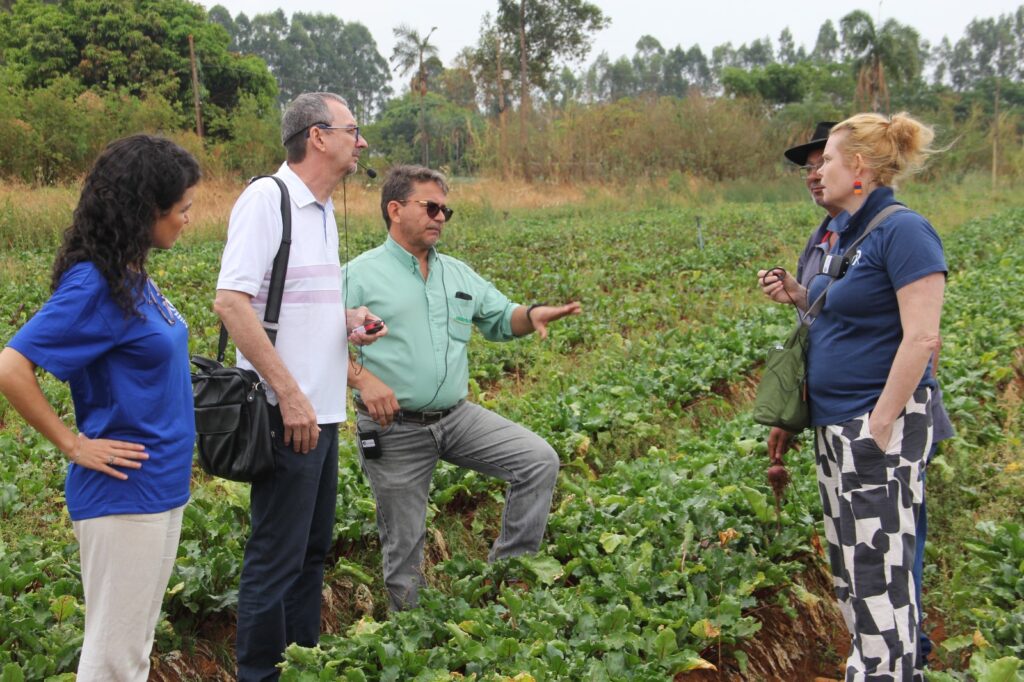 ©WFP/Ana Mascarenhas
©WFP/Ana Mascarenhas
A high-level delegation from Armenia, led by the Deputy Minister of Education, Science, Culture, and Sports, Ms. Araksia Svajyan, has been in Brazil since Monday (14th) for a five-day technical visit aimed at deepening their understanding of the Brazilian National School Feeding Program (PNAE). The delegation, consisting of 15 participants, including representatives from various ministries and the Armenian School Feeding and Child Welfare Agency, seeks to exchange experiences and identify collaboration opportunities to strengthen their own school feeding program. The visit concludes this Friday (17th).
The visit is organized by the World Food Programme (WFP) Centre of Excellence against Hunger in Brazil, in partnership with the National Fund for Educational Development (FNDE) and the Brazilian Cooperation Agency (ABC).
“With Armenia’s visit, we are engaging at a high level to mobilize decision-makers regarding the improvement of the school feeding program in their country,” stated Maria Giulia Senesi, Programme Assistant at the WFP Centre of Excellence against Hunger in Brazil.
Armenia’s school feeding program, implemented since 2010 with support from the WFP and funding from the Russian Federation, currently benefits more than 111,000 primary school children across 1,050 schools. The program was fully nationalized in 2022, with management entirely transferred to the Armenian government.
“We are here to learn, and we also hope to share something with the Brazilian government, especially on the transformative model of the circular economy and related topics. What stands out in Brazil is the intergovernmental coordination and legislation, such as the policy encouraging the purchase of products from family farming. In Armenia, we have many rural producers who still lack access to a stable market,” said Nanna Skau, WFP Director in Armenia.
The visit agenda included meetings with representatives from various government bodies, such as the FNDE, the Ministry of Agriculture, the Ministry of Health, and the Ministry of the Environment. The delegation also conducted field visits to a food distribution center, a rural property supplying products to PNAE, an urban school, and a rural school. The program also featured workshops on menu planning, nutrition, and the monitoring and evaluation of school feeding programs.
The exchange of knowledge and cooperation between Brazil and Armenia is expected to contribute to the development of more efficient and sustainable school feeding programs in both countries.




